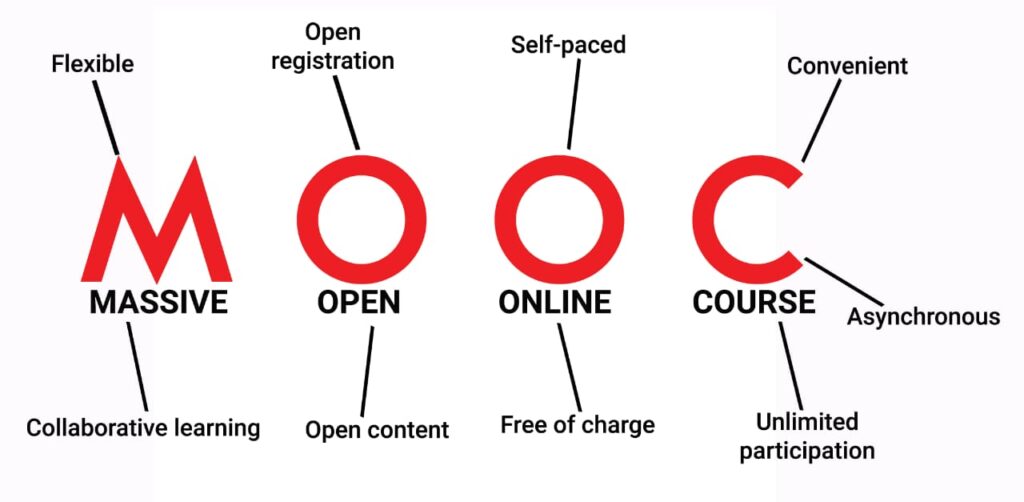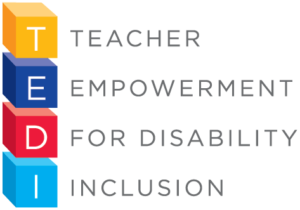Introduction to massive open online courseS (MOOCs)
What are MOOCs?
Massive Open Online Courses (MOOCs) MOOCs are self-directed online courses with open enrolment. MOOCs are a convenient, flexible, and cost-effective type of online learning. Learners have greater flexibility in how they choose to make use of the learning opportunities being provided, which includes choosing when to leave the MOOC. Furthermore, MOOCs are asynchronous which means the online learning platform does not require students and instructors to be online or in person at the same time for instruction. This technology allows instructional designers to create courses that participants can go through on their own with little or no help from an instructor. MOOCs have been created to support large numbers of people across the globe. They are developed by universities and hosted on web platforms such as Coursera. Also, MOOCs are being created to support the mission and vision of universities, which is to share and make accessible knowledge, and to make potential students aware of formal degree programs. These courses are characterized as non-formal learning as there is no formal qualification required for completing the course. This approach may be quite different from traditional learning spaces, though some MOOC courses offer formal degree qualification.

How To Promote Increased Engagement in MOOCs?
Motivation is a prerequisite to participate in MOOCs. This assists participants to stay engaged with the learning material. Also, participant’s willingness to enroll in MOOCs depends on their psychological needs namely autonomy, relatedness, and competence. Autonomy provides a motivational basis for MOOC participant’s behavioral engagement because an individual voluntarily decides to participate. On the other hand, relatedness refers to the need for an individual to connect with other people such as their peers and MOOC facilitators. Engagement is further promoted when participants are afforded the opportunity to interact with MOOC facilitators and fellow participants. Finally, competence refers to the need for a person to master one’s pursuits of learning such as participating in MOOCs to further develop one’s professional skills.

